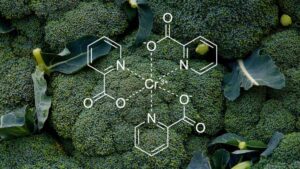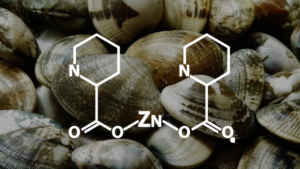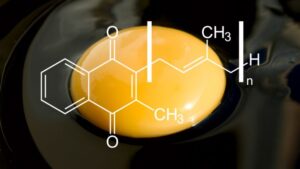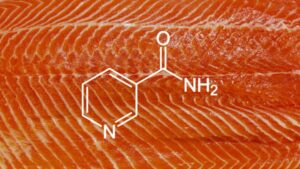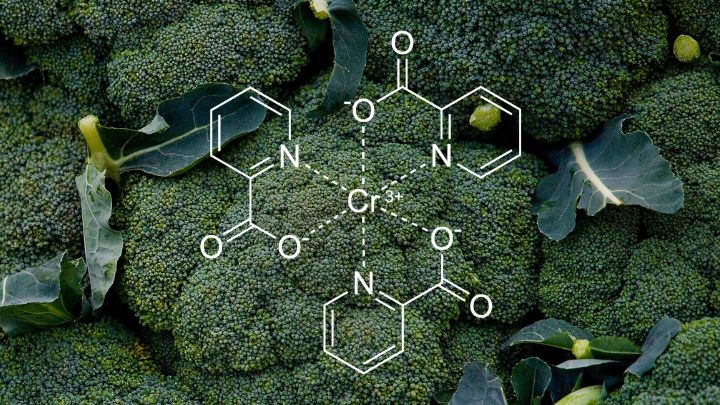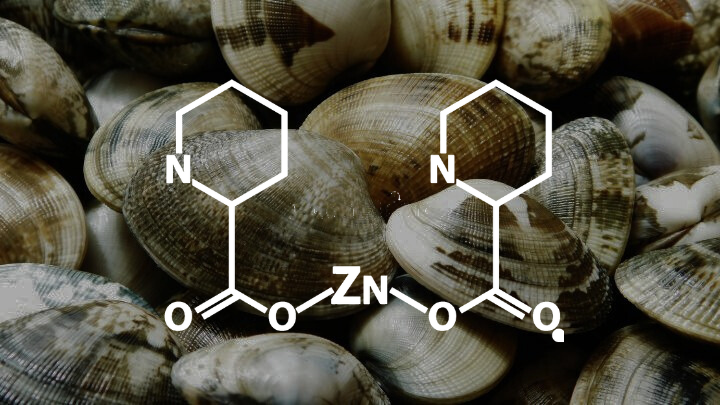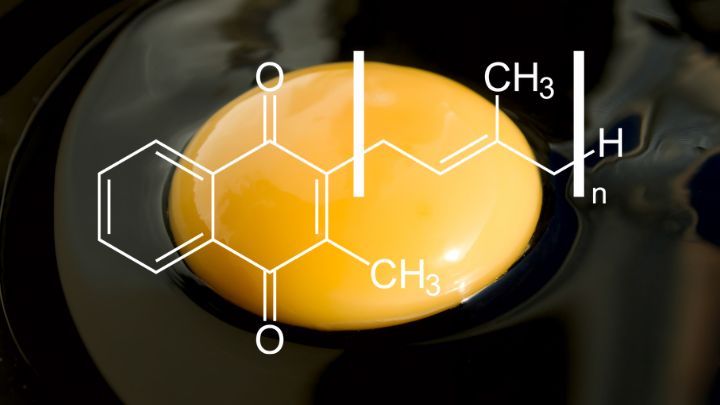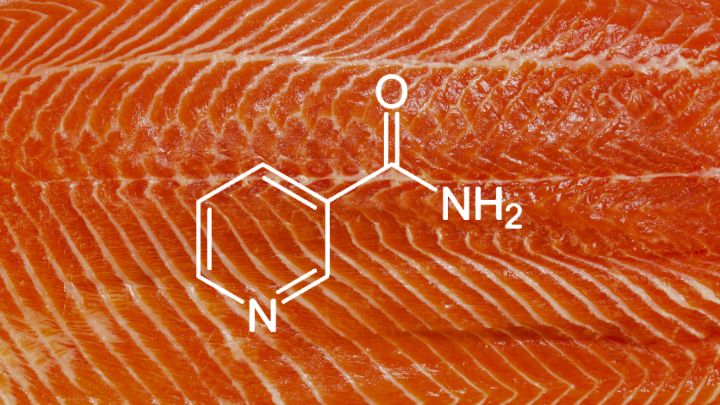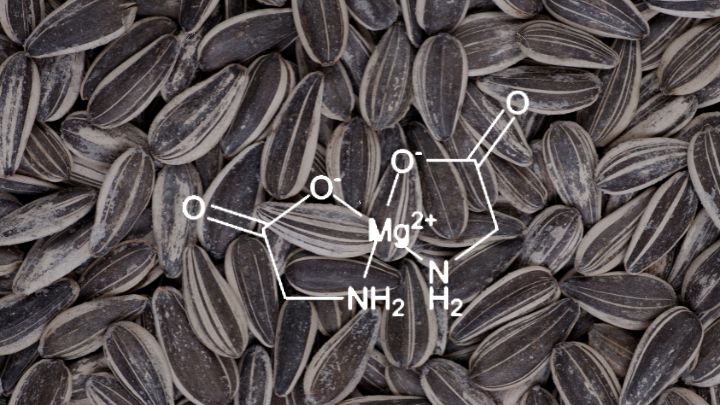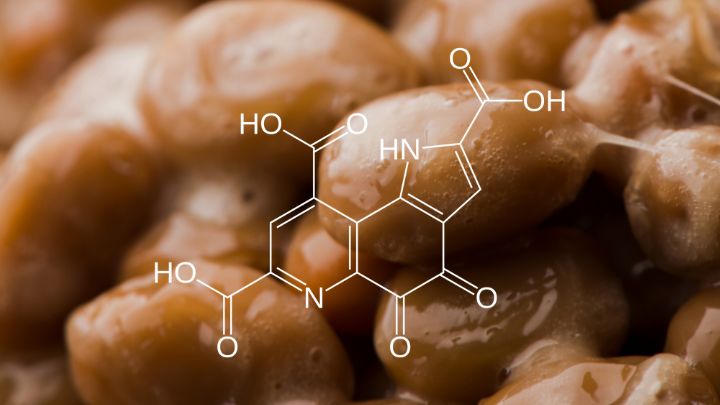We get it. To stay in optimal health, you want to stay updated with the latest research in the longevity field.
Without them, it might just all be a waste of time, effort, and money. But the vast sea of health guidance on social media can be confusing at best and hazardous at worst.
That’s why we are trusting- Andrew Huberman, Ph.D., a renowned neuroscientist, known for his dedication to science-backed health optimisation.
At Avea, we decided to draw a practical roadmap on the dietary supplements he suggests may elevate wellness.
We zeroed in on Huberman’s supplements, those he not only recommends but also incorporates into his daily life. The article also comprises the scientific mechanism behind each supplement.
Let’s dive into his toolkit and see how they may contribute to a healthier health span.
In this article
Free guide to reverse your biological age

- Master the science of rejuvenation.
- Apply proven tips to turn back the clock.
- Transform your health with top longevity specialists.
1: Fuelling Testosterone naturally
Testosterone, often regarded as the essence of masculinity (trust us, it isn’t), has a profound influence on muscle mass, bone density, and overall vigour.


Did you know that it’s estrogen that causes aggressiveness and not testosterone?
Huberman’s approach to supporting the body’s testosterone levels is grounded in a blend of nature and science. He incorporates Tongkat Ali and Fadogia Agrestis, both dosed at 400-600 mg daily.
Adding to this natural toolbox are Zinc and Boron—micronutrients pivotal for hormonal health. Here’s why he loves these 4 supplements:
1. Tongkat Ali
Tongkat Ali, also known as Eurycoma longifolia, has a history in traditional Southeast Asian medicine. It stands out for its testosterone-enhancing properties. Supported by scientific research, it’s shown promise in boosting male fertility and contributing to hormonal balance.
The active components, quassinoids, are believed to stimulate the body’s own hormone production. Beyond its androgenic benefits, Tongkat Ali may also play a role in stress reduction, helping to lower cortisol levels and thereby support an anabolic environment for muscle growth and recovery.
2. Fadogia Agrestis
Emerging on the scene of testosterone support is Fadogia Agrestis, an African shrub that has been traditionally used to enhance vitality. Recent interest has been sparked by studies indicating its potential to naturally increase testosterone levels.
It is believed to work by stimulating the body’s own testosterone production pathways. While the scientific community continues to explore its full effects, the preliminary evidence points towards promising benefits for those seeking a natural boost in hormonal health.
As with any potent herb, cycling on and off is advised to maintain its efficacy and minimize any adaptation by the body.
3. Zinc
Zinc is not just a trace mineral but a critical component in the testosterone production matrix. Its presence catalyses the enzymatic actions that facilitate the synthesis of this vital androgen, with studies highlighting its positive effects on testosterone levels, especially in men with deficiencies.
But it’s not just about testosterone; Zinc also plays a vital role in immune function, wound healing, and DNA synthesis.
4. Boron
Boron, is a mineral that’s less well-known but equally potent in influencing hormonal health. At doses of 2-4 mg per day, Boron has been linked with an increase in free testosterone and a decrease in estrogen levels.
It also improves bone density and better absorption of other minerals like Magnesium, playing a supportive role in overall wellness. While the science speaks for itself, moderation is key—excessive amounts of any supplement can lead to imbalances and should be discussed with a healthcare provider.
Reverse your age by 6.5 years like Ibrahim
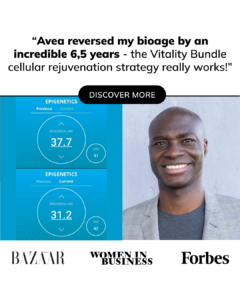
- Explore the secrets behind Ibrahim’s transformation.
- Discover simple, proven strategies to improve vitality.
- Understand the role of supplements in reversing biological age.
2. Enhancing sleep quality
Sound sleep is a critical component of health, essential for everything from memory recollection to muscle repair. Dr. Andrew Huberman takes a scientific approach to sleep, employing a targeted supplement regimen to enhance sleep quality.

1. Magnesium L-Threonate
Also singled out for its unique ability to cross the blood-brain barrier, it sets apart from other forms of Magnesium. At a dosage of 140 mg, it’s been linked with enhanced sleep quality and potential cognitive benefits, making it a key component of Dr. Huberman’s sleep-enhancing stack.
Magnesium is a vital mineral, indispensable to many bodily processes, including over 300 enzyme reactions. In the context of sleep and relaxation, Magnesium interacts with the neurotransmitter GABA, similar to how certain sleep medications work.
It helps to quiet the nervous system and prepare the body for rest. This action can lead to a more peaceful and uninterrupted sleep, which is crucial for recovery and rejuvenation.

Above 95% of the world population is deficient in Magnesium.
2. L-Theanine
L-Theanine, primarily found in tea leaves (e.g. Green Tea), is an amino acid known for its ability to instil calm without causing sleepiness. Taken in doses of 100-300 mg, it facilitates a state of relaxation pivotal for initiating sleep.
It boosts brain chemicals like GABA, serotonin, and dopamine, which are crucial for mood regulation and stress relief. Unlike typical sedatives, L-Theanine enhances alpha brain wave activity, associated with ‘wakeful relaxation,’ enabling a person to remain alert yet calm, which can aid in falling asleep more easily.
It promotes relaxation, facilitating restful sleep without next-day grogginess. Its safe, non-addictive properties make it an optimal choice for enhancing sleep quality naturally.
3. Apigenin
At 50 mg, Apigenin, a flavonoid present in chamomile, exerts a mild sedative effect conducive to sleep initiation. Its tranquil effect subtly prepares the mind for rest without the side effects associated with stronger sedatives.
This compound’s mild action on sleep is an asset for anyone needing a nudge toward relaxation without the commitment to a heavy sleep aid. Apigenin’s non-addictive nature and absence of grogginess upon waking position it as a prime, natural choice for sleep support.
4. Inositol
Inositol, often referred to as vitamin B8, is not a vitamin at all. It’s a type of sugar that plays a crucial role in your body’s cell membranes. It influences the action of insulin, a hormone essential for blood sugar control, and modulates the activity of serotonin and dopamine, neurotransmitters paramount for mood balance and sleep regulation.
Dr. Andrew Huberman incorporates 900 mg of inositol into his nightly regimen, a dosage that supports neurotransmitter function and assists in managing the body’s stress response.
Inositol helps to smooth out the neural oscillations that can lead to restlessness and anxiety. By promoting the signalling of serotonin and dopamine, inositol supports a more balanced and restful night’s sleep, crucial for cognitive function and overall well-being.
5. GABA & Glycine
GABA (Gamma-Aminobutyric Acid), at a supplementary dose of 100 mg, acts as the brain’s brake pedal, facilitating a slowdown in neural activity which is essential for initiating the sleep process.
As the main inhibitory neurotransmitter, it’s pivotal in reducing neuronal excitability throughout the nervous system, thereby aiding in the relaxation necessary for sleep.
Glycine, an amino acid taken at 2 grams by Dr. Huberman, complements GABA’s effects by further calming the mind and also contributing to a decrease in body temperature, signalling to the body that it’s time to sleep.
Together, GABA and Glycine form a targeted approach for assisting in easing the transition into deep sleep, proving particularly beneficial when stress or irregular schedules disrupt normal sleep patterns.
The best anti-ageing supplements
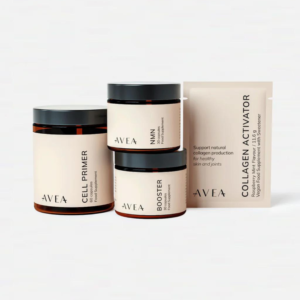
- Addresses signs of ageing comprehensively.
- Improves sleep quality.
- Boosts cellular renewal and energy.
- Enhances collagen production.
- Recommended by biohackers and health experts.
3. Boosting mental sharpness and focus
In the ever-demanding rhythm of daily life, maintaining mental sharpness and focus is not just an advantage but a necessity. Huberman incorporates 3 supplements into his routine to support cognitive functions such as concentration, memory, and mental clarity.

1. Alpha-GPC
Alpha-GPC, or Alpha-glycerophosphocholine, is a cholinergic compound that provides choline, a vital nutrient that supports brain health. At a dose of 300 mg, it can cross the blood-brain barrier, directly increasing the synthesis of acetylcholine—a neurotransmitter pivotal for learning and memory.
2. L-Tyrosine
L-Tyrosine steps in as a precursor to several important neurotransmitters, including dopamine, norepinephrine, and epinephrine. These neurotransmitters are crucial for brain function under stress or when multitasking. The administration of 500 mg of L-Tyrosine can thus provide the raw materials the brain needs to perform optimally, especially during periods of high cognitive demand or when coping with environmental stressors.
3. Phenylethylamine
Phenylethylamine, dosed at 500 mg, is a naturally occurring trace amine that acts as a neuromodulator or neurotransmitter in the brain. Known for its mood-boosting effects, PEA stimulates the release of dopamine and norepinephrine, creating an uplifting effect on mood and potentially helping to improve focus and attention.
Dr. Huberman takes these at different times throughout the day, to tap into their individual benefits.
4: Sustaining cognitive vitality
The human brain is an organ that demands meticulous care, particularly as one ages. Dr. Andrew Huberman’s supplement stack for cognitive longevity combines well-researched compounds known for their brain-health benefits.
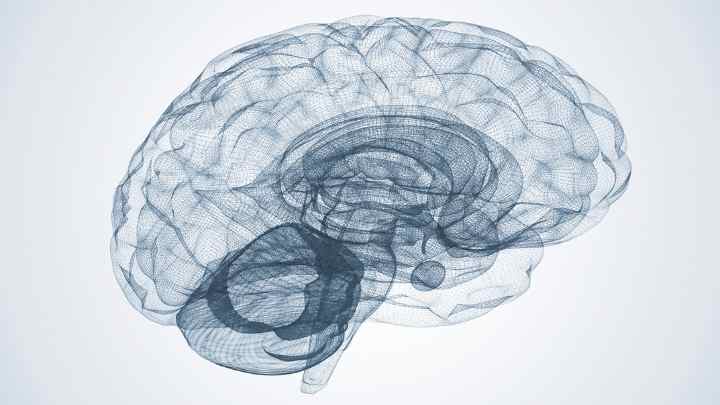
1. Omega-3 fatty acids
Omega-3 fatty acids, specifically EPA (Eicosapentaenoic acid), at a daily intake of 2–3 grams, are essential for maintaining brain health. These polyunsaturated fats are critical components of cell membranes throughout the body, and are particularly abundant in the brain.
EPA is known for its anti-inflammatory properties, which can help protect the brain against age-related damage and maintain cognitive function. Omega-3s also play a role in neurotransmission and neurogenesis, the growth of new neurons, which are vital processes for cognitive maintenance.
2. Glutamine
Glutamine, though often recognised for its role in muscle repair, is also a key amino acid for the brain. It serves as a building block for the production of glutamate and GABA, neurotransmitters that are crucial for brain function and mental performance.
Its supplementation can support brain metabolism and provide a substrate for the antioxidant glutathione, which is integral to the brain’s defence system against oxidative stress, a factor in cognitive decline.
3. Creatine
Creatine is commonly associated with physical strength, but is equally important for mental stamina. It helps to replenish ATP (adenosine triphosphate), the energy currency of the cell, which is vital for sustaining high-level brain function.
Regular supplementation with Creatine can provide cognitive support, especially in tasks that require speed of processing and improved memory. This makes it a valuable nutrient for keeping the mind agile and responsive.
The daily vitality boost you need
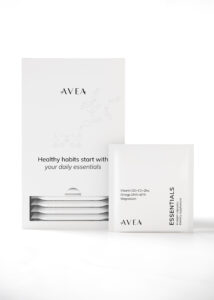
- Address common nutrient deficiencies like Magnesium, Omega-3, and Vitamin D.
- Support immune and overall health.
- Enhance your energy and vitality.
5: The extended supplement lineup
In addition to targeted supplements for cognitive and sleep enhancement, Dr. Andrew Huberman incorporates a broader spectrum of nutrients that serve as the bedrock for overall health and longevity.

1. Vitamin D
Vitamin D, often dubbed the ‘sunshine vitamin,’ is actually a hormone synthesized in the skin in response to sunlight. Its supplementation is crucial, particularly in individuals with limited sun exposure.
Vitamin D receptors are widespread throughout the body and brain, underscoring its vital role in maintaining immune function, bone health, and possibly even mood regulation.
2. Vitamin K2
Vitamin K2 works in tandem with Vitamin D, promoting the deposition of calcium into bones rather than arteries, thus supporting both bone density and cardiovascular health. Huberman highlights the synergy between Vitamin D and K2, which can enhance the efficacy of calcium utilisation in the body.
3. Athletic Greens
Athletic Greens, a comprehensive blend of vitamins, minerals, and whole-food-sourced nutrients, offers a broad spectrum of essential micronutrients in one convenient serving. This greens powder is designed to fill any gaps in the diet, ensuring a foundation of nutritional support.
4. Rhodiola Rosea & Ashwagandha
Rhodiola Rosea and Ashwagandha are classified as adaptogens, herbal supplements that help the body resist physical, chemical, and biological stressors. Rhodiola is known for reducing perceived fatigue, while Ashwagandha is reputed for its ability to lower cortisol levels, the body’s primary stress hormone.
5. Multivitamins
Multivitamins serve as a nutritional safety net, a diverse blend of vitamins and minerals to support a plethora of bodily functions. Dr. Huberman’s choice of a multivitamin ensures daily nutritional requirements are met, backing up his diet with a spectrum of micronutrients.
6. NMN
Nicotinamide mononucleotide (NMN) has gained prominence for its role in enhancing cellular energy levels. It’s a precursor to NAD+, a coenzyme critical for metabolic processes.
By supplementing with NMN, Huberman aims to support cellular repair and energy production, which are fundamental to maintaining vitality.
At Avea, our NMN supplement is a powerful, high-quality formulation that targets the diverse mechanisms of ageing at the cellular level. Our supplement is third-party tested for purity and contains Uthever® NMN, a brand recognized for its top quality and safety, as well as less temperature sensitivity and more bioavailability than other NMN brands.
Our NMN supplement has shown promising results in a recent randomised, double-blind, controlled clinical trial to evaluate its efficacy and safety.
6. A critical look at certain supplements
Dr. Andrew Huberman takes a discerning approach to sleep supplements, particularly with melatonin.
Whilst acknowledging its effectiveness in shifting the circadian rhythm, he cautions against the use of exogenous melatonin for several reasons.
He notes that many melatonin supplements contain doses that significantly exceed the body’s natural production, often ranging from 3 to 6 milligrams, which can be excessive.
This is compounded by the variability in product quality, with some brands containing anywhere from 15% to 155% of the stated dose on the label, posing a challenge in consistency and reliability of dosage.
Keynote from Avea
Dr. Huberman emphasises the primacy of behavioural interventions over supplements. We all know supplements are called supplements for a reason.
He advocates for natural light exposure in the morning, controlling light exposure at night, and managing nutritional intake and timing, alongside maintaining regular exercise and moderating caffeine consumption.
As we absorb the wealth of knowledge that Dr. Huberman shares, it’s crucial to remember that individual needs vary, and what works for one person may not suit another. It is always advisable to consult with healthcare professionals when changing supplement routines.
